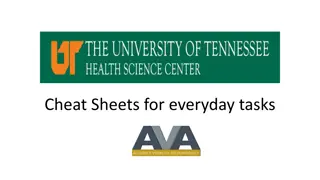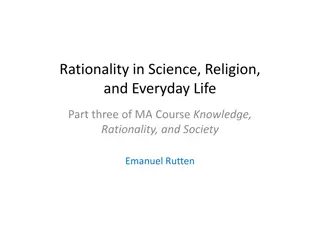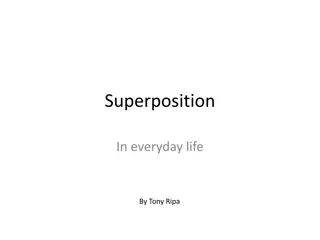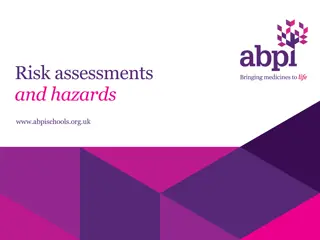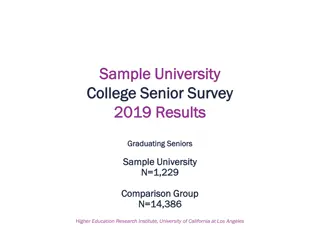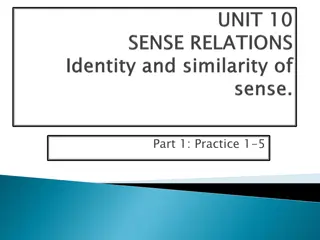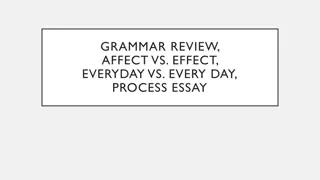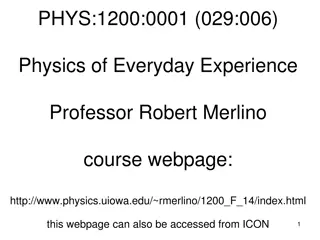Ethnography: Documenting Everyday Experiences
Ethnography involves observing and interviewing individuals to document their daily lives. Researchers aim to capture the nuances of culture, behaviors, and perspectives through in-depth participant observation. Using emic and etic perspectives, ethnographers contextualize their findings and provide thick descriptions without passing judgment. Sampling in ethnographic research is small and purposive, focusing on detailed understanding rather than generalization.
Download Presentation

Please find below an Image/Link to download the presentation.
The content on the website is provided AS IS for your information and personal use only. It may not be sold, licensed, or shared on other websites without obtaining consent from the author.If you encounter any issues during the download, it is possible that the publisher has removed the file from their server.
You are allowed to download the files provided on this website for personal or commercial use, subject to the condition that they are used lawfully. All files are the property of their respective owners.
The content on the website is provided AS IS for your information and personal use only. It may not be sold, licensed, or shared on other websites without obtaining consent from the author.
E N D
Presentation Transcript
What is ethnography Documenting and portraying the everyday experiences of individuals by observing and interviewing them and others related to them. Seeing the whole picture through in-depth interviews and ongoing participant observation
Ethnographic Research helps researchers see little details which other methods might miss Ethnographers study people in their natural habitat, so they can see things that otherwise might not even be anticipated
Ethnographic Concepts (Fraenkel and Wallen, 2006) Culture Culture: Interpretation of a group s culture is very important in ethnographic research. Ethnographers search for behaviors and ideas that characterize a group. A A Holistic Holistic Perspective Spending great amount of time in the field, ethnographers try to get a large picture of the culture of the group: beliefs, symbols, customs, rituals, politics, history, etc Perspective: :
Contextualization Contextualization: Placing what the ethnographer has seen and heard into a larger perspective An An emic emic/ /etic Emic Emic perspective perspective is the insider s perspective of reality; it is crucial in understanding and describing the behaviors and situations that the researcher sees and hears accepts the idea of multiple realities. Etic Etic perspective perspective is the external objective perspective on reality. etic perspective perspective: : Ethnographers use both of these perspectives
Thick Thick description description: : While preparing the final report of their research, ethnographers describe their work in the field in great details, using extensive quotation from the participants in their study Member Member checking The participants review on what the researcher has written in terms of checking for accuracy and completeness checking Nonjudgmental orientation Nonjudgmental orientation: : Ethnographers do their best to avoid from making value judgements about unfamiliar practices
Sampling in Ethnographic Research The sample in ethnographic research is quite small and almost purposive The sample do not permit generalization to a larger population: aim is to look for a more complete understanding of a particular situation rather than to generalize the results of their study. Replication of the work in other settings by other researchers can show the applicability of their findings
Participant Observation It helps ethnographers gain a close and intimate familiarity with the individuals in the community and their practices through an intensive involvement with people in their natural environment, usually over an extended period of time (6 months 1 year) In education , it is non-continuous and spread out over a long period of time
Field Notes Used as a major check on the accuracy of the ethnographer s observations Field notes are the detailed notes that the researcher takes in the educational setting (classroom, school) as s/he observes what is going on
Field notes can be in different forms: Field Field jottings jottings: quick notes about something to write more about later. They help the researcher recall the details when they have time to write
Field Field diary opinions, perceptions about others diary: a personal statement of the researcher s feelings, E.g. Monday, 11/5. Cold, very rainy day. Makes me feel sort of depressed. Phil, Felix, Alicia, Robert and Susan came into classroom early today to discuss yesterday s assignment. Susan is looking more messy than usual today seems preoccupied while others are discussing ways to prepare the group report. She doesn t speak to me, although all others say hello. I regret my failure to support her idea during yesterday s discussion when she asked me to. Hope that it will not result in her refusing to be interviewed.
Field Field log plan. Generally on the left, researcher lists what s/he plans to do that day (where to go, who to interview, what to observe, etc). On the right side, s/he lists what s/he really did. log: a kind of planning and checking the Field log forces the researchers to think hard about the questions s/he truly wants answered, the procedures to be followed and the data really needed.
Descriptive Descriptive Field following: Field Notes Notes: describing the setting, the people, and what they do. May include the -portraits of the participants -conversations between participants and with the researcher -description of the physical setting -description of activities -observer s behaviours -accounts of some particular events
Reflective Reflective Field May include the following: Field Notes Notes: presents what the researcher is thinking about while s/he observers. -reflections on analysis -reflections on methods -reflections on ethical dilemmas and conflicts -reflections on the observer s frame of mind (his/her attitude, opinions..) and how this might affect the study -points of clarification
Assignment (Field Notes) Prepare a focus of inquiry statement (e.g. I would like to understand how ..) Decide what type of participant you want to be Decide the type of the field notes Decide where you want to do your observation (to take field notes) Allow yourself about half an hour Write your field notes.
(Follow-up) Reread Reread your What is important here? What is it that you need to find out more about? What would you want to focus on more closely if you returned to this setting? your field field notes notes, , guided guided by by these these questions questions: :
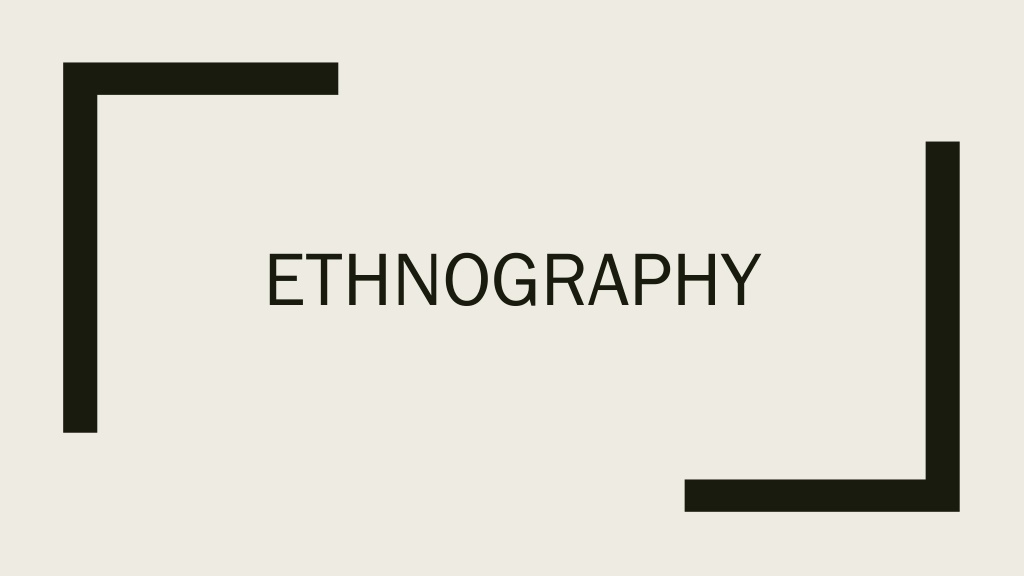
 undefined
undefined






